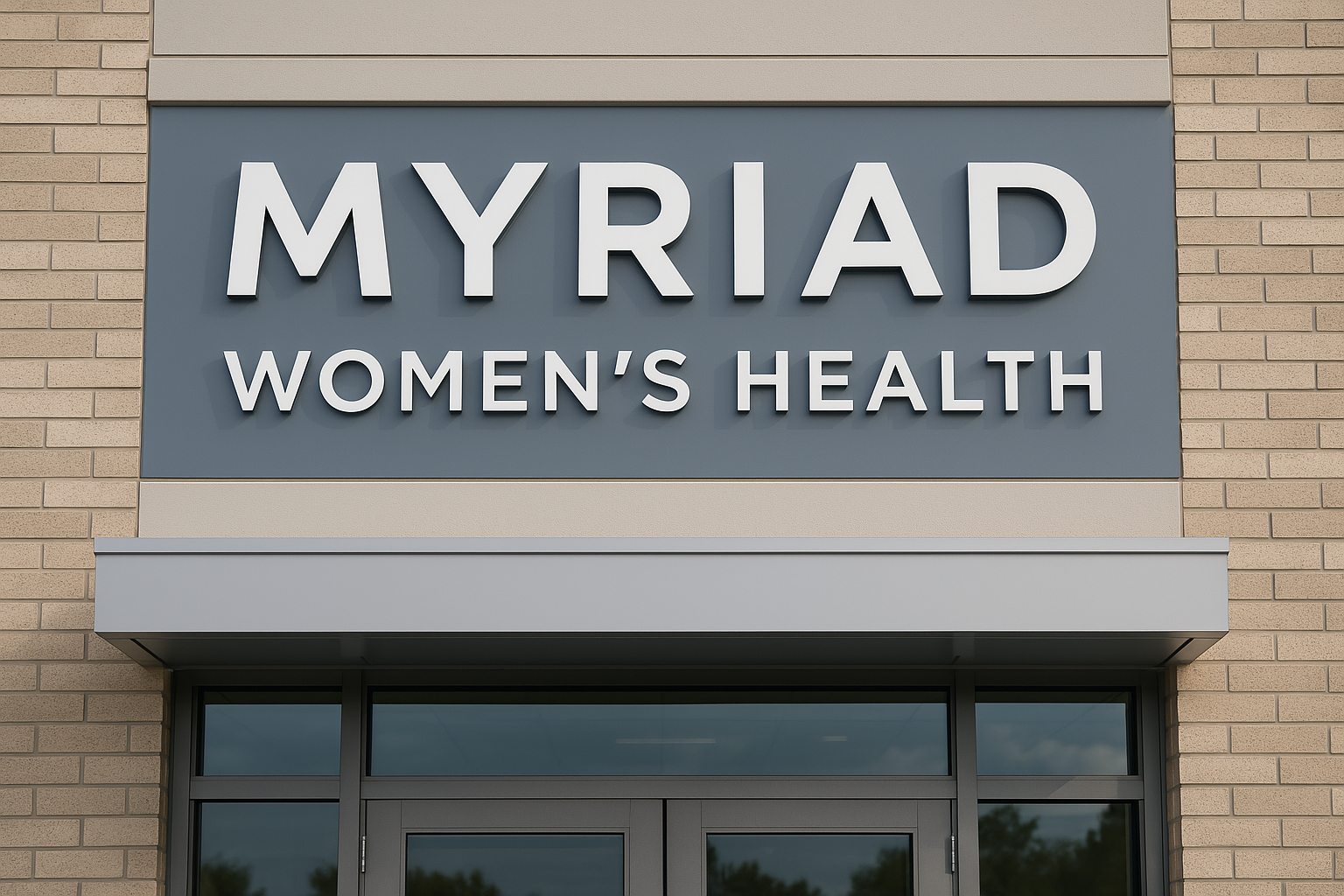Women’s Professional Health – Prioritizing Wellness at Every Stage!

Women’s health is more than just medical checkups—it’s about understanding your body, making informed choices, and seeking the right care at every stage of life. Whether you’re in your 20s focusing on reproductive health, in your 40s navigating hormonal changes, or in your 60s prioritizing bone health, professional healthcare plays a vital role in ensuring long-term well-being.
Let’s explore what women’s professional health truly means and how you can take control of your well-being.
Why Women’s Health Matters

Women’s bodies go through unique changes throughout life—puberty, pregnancy, menopause, and beyond. Because of these changes, women are at higher risk for certain health conditions, including:
✔️ Reproductive health issues (PCOS, endometriosis, infertility)
✔️ Hormonal imbalances (thyroid disorders, menopause symptoms)
✔️ Heart disease (the leading cause of death in women)
✔️ Osteoporosis (bone loss due to hormonal changes)
✔️ Mental health challenges (depression, anxiety, postpartum mood disorders)
Regular visits to a trusted healthcare provider can help detect and manage these conditions before they become severe.
Routine Checkups: The Foundation of Good Health
Annual checkups aren’t just for treating problems—they’re about preventing health issues before they start. A well-woman exam is a yearly visit that includes:
✅ General health assessment – Checking weight, blood pressure, and overall wellness
✅ Pap smears – Screening for cervical cancer
✅ Breast exams – Detecting early signs of breast cancer
✅ STD testing – Ensuring reproductive health and safety
✅ Hormonal health check – Addressing imbalances that can cause fatigue, mood swings, or irregular cycles
These routine checkups provide peace of mind and early detection, making a big difference in long-term health.
Comprehensive Care for Women at Every Stage
Women’s healthcare isn’t just about one phase of life—it’s about comprehensive, lifelong wellness.
Reproductive Health & Family Planning
During the reproductive years, many women focus on:
🔹 Birth control options (pills, IUDs, implants, injections)
🔹 Fertility treatments for those struggling to conceive
🔹 Pregnancy care to ensure a healthy journey from conception to delivery
🔹 Menstrual health to manage irregular cycles, cramps, or PCOS
Having a knowledgeable gynecologist ensures you get the right guidance at every step.
Menopause & Hormonal Changes
As women age, hormonal shifts can lead to:
✔️ Hot flashes, night sweats, mood swings
✔️ Bone loss (osteoporosis) and joint pain
✔️ Changes in metabolism and weight gain
A professional women’s health provider can offer solutions like hormone replacement therapy (HRT), dietary changes, and lifestyle recommendations to ease this transition.
Preventive Care: Staying Ahead of Health Issues
Women are more prone to certain diseases, making preventive care crucial. Regular screenings and lifestyle changes can significantly reduce risks.
1. Heart Health
🔹 Why it matters: Heart disease is the #1 killer of women.
🔹 Prevention: Eat a heart-healthy diet, exercise regularly, and monitor cholesterol and blood pressure.
2. Breast Cancer Screenings
🔹 Why it matters: Early detection saves lives.
🔹 Prevention: Mammograms should start at age 40 or earlier if there’s a family history.
3. Bone Health
🔹 Why it matters: Women are at higher risk for osteoporosis.
🔹 Prevention: Calcium, vitamin D, and weight-bearing exercises help maintain strong bones.
4. Diabetes & Metabolic Health
🔹 Why it matters: Hormonal changes can increase insulin resistance.
🔹 Prevention: Maintaining a balanced diet and active lifestyle helps manage blood sugar levels.
Mental & Emotional Health: A Key Part of Women’s Well-Being
Women are twice as likely as men to experience depression and anxiety due to hormonal fluctuations, societal pressures, and life changes. Mental health is just as important as physical health, and professional care can help with:
✔️ Postpartum depression – Managing mood swings after childbirth
✔️ Anxiety and stress management – Learning coping techniques and seeking therapy
✔️ Hormonal mood disorders – Addressing mood changes linked to menstrual cycles, pregnancy, or menopause
A good healthcare provider will prioritize mental well-being along with physical health.
Also Read: Women Health Clinic Near Me – Finding the Best Care for Your Well-Being!
The Importance of Finding a Trusted Healthcare Provider
Women’s health is deeply personal, and finding a compassionate, professional provider is essential. When choosing a gynecologist, primary care doctor, or women’s health specialist, look for:
✔️ A patient-centered approach – A doctor who listens and respects your concerns
✔️ Comprehensive services – From reproductive care to menopause management
✔️ A welcoming environment – A comfortable space where you feel safe and heard
A strong doctor-patient relationship ensures that you receive personalized, high-quality care throughout your life.
FAQ’s
1. What is women’s professional health?
Women’s professional health refers to comprehensive medical care focused on women’s unique health needs, including reproductive health, hormonal balance, preventive screenings, and overall well-being.
2. How often should a woman visit a healthcare provider?
Women should have a yearly well-woman exam, which includes breast exams, Pap smears, and overall health assessments. Additional visits may be needed for specific concerns like pregnancy, menopause, or hormonal imbalances.
3. What are the most important health screenings for women?
Key screenings include Pap smears (cervical cancer), mammograms (breast cancer), bone density tests (osteoporosis), cholesterol checks (heart health), and blood sugar tests (diabetes prevention).
4. How can women manage hormonal imbalances naturally?
Women can balance hormones by maintaining a healthy diet, exercising regularly, managing stress, getting enough sleep, and considering medical options like hormone therapy when necessary.
5. What are the signs of a healthy reproductive system?
A healthy reproductive system typically includes regular menstrual cycles, no unusual pain or discomfort, normal hormonal balance, and no symptoms of infections or irregular bleeding.
6. What lifestyle habits improve women’s long-term health?
Key habits include eating a balanced diet, staying physically active, avoiding smoking and excessive alcohol, managing stress, and prioritizing mental health.
7. How does menopause affect a woman’s health?
Menopause can lead to hot flashes, mood swings, weight gain, sleep disturbances, and an increased risk of osteoporosis. Healthcare providers can offer treatments to ease these symptoms.
8. Why is mental health important in women’s healthcare?
Mental health is crucial because women are more prone to anxiety, depression, and hormonal mood swings. Prioritizing self-care, therapy, and stress management can help maintain emotional well-being.
Final Thoughts: Investing in Your Health for a Better Future
Women’s professional health isn’t just about treating symptoms—it’s about prevention, education, and long-term well-being. Every woman deserves access to quality healthcare, expert advice, and a support system that empowers her to make informed decisions about her body and health. Take charge of your wellness today. Prioritize your health, schedule regular checkups, and invest in a future of vitality and strength!
Related Post
- Princess Kazer – A Royal Journey of Grace, Courage, and Empowerment!
- Pernithia Galnith – Definition and Meaning!
- Chongqing 520m Building – A Symbol of China’s Vertical Vision and Urban Ambition!
- What Is Jahizekosedos – Meaning, Purpose & Possible Applications!
- Zazichotnoiz – A Deep Dive into Its Meaning and Significance!









